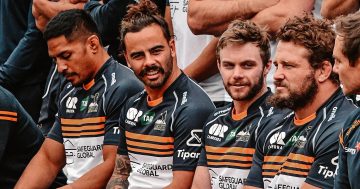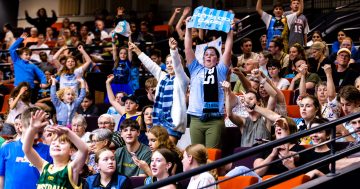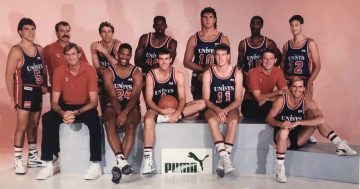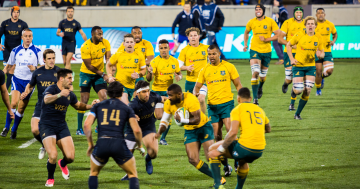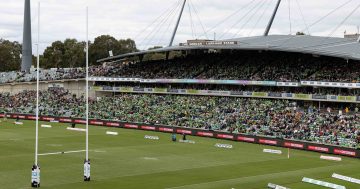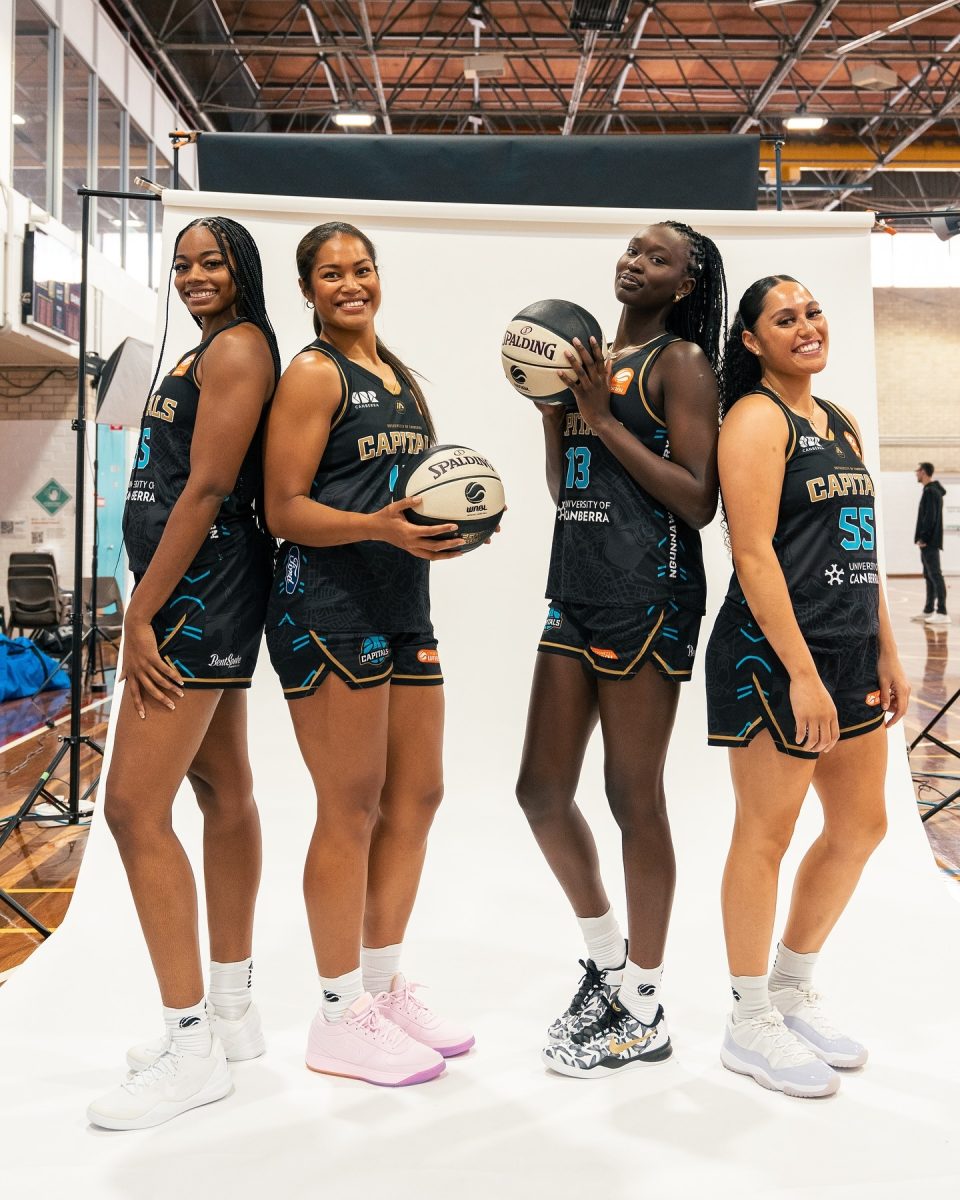
The University of Canberra is the major sponsor of the Capitals in the 2024/25 season. Photo: UC Capitals.
Walk onto any sports ground in Canberra, and there are endless lists of sponsors on the boundary fence, on the scoreboard, on merchandise, and the players’ kits.
These sponsors, some paying as little as a couple of thousand dollars, are essential to the life of Canberra sport at the grassroots.
Without these sponsorships, clubs wouldn’t necessarily fold, but a greater cost would fall on the participants. This could result in a decrease in participation. The inevitable consequence is that those who can afford to play reap the physical, mental and social benefits of sport.
As the level of professionalism rises, so too the level of sponsorship required, which is why we have seen the likes of the Cosmos and Cannons erased from the sporting landscape.
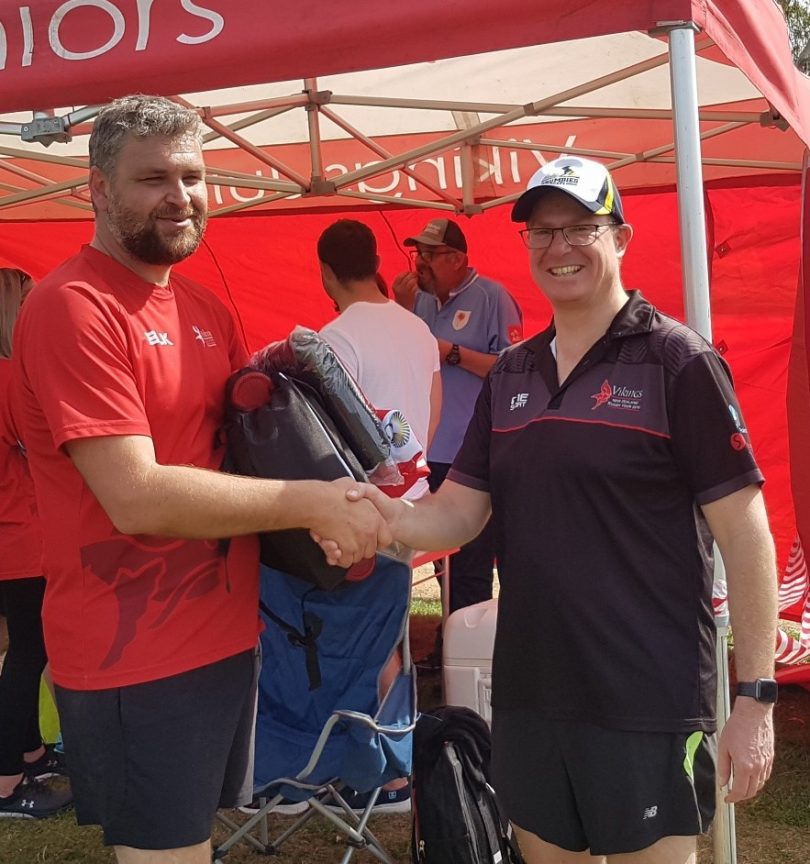
Vikings Junior Rugby sponsors Callida Consulting continued to support the club even throughout COVID-19 restrictions. Photo: Supplied.
I am writing this column as Canberra bids for a Big Bash team and an A-League men’s side while the NBL is circling in the hope that a ‘Cannons mark 2’ will materialise.
One thing all have in common, apart from being aspirational, is a request for significant government funding to get these bids over the line.
Canberra is a unique city when it comes to corporate sponsorship, with the biggest industry in town being the public service.
Apart from defence recruiting or defence housing, it is hard to imagine too many federal government departments providing significant sponsorship to a professional Canberra sporting team.
It would be a hard sell and perhaps considered to be political suicide by those in other regions.
The IT, data storage, licensed clubs, consultancy firms, real estate agencies and finance industries have emerged as significant businesses in Canberra and have, at times, dipped their toes into the sports sponsorship waters.
Beyond these groups and the public service, where else do you go for multi-million-dollar sponsorship deals for Canberra sporting teams?
The city’s two biggest sports teams are a case in point.
The Raiders and the Brumbies have major sponsors based outside Canberra with a national, and in some cases, an international profile.
Over the years, we have seen the Raiders sponsored by local businesses such as Canberra Milk, the Tradies and Woodgers.
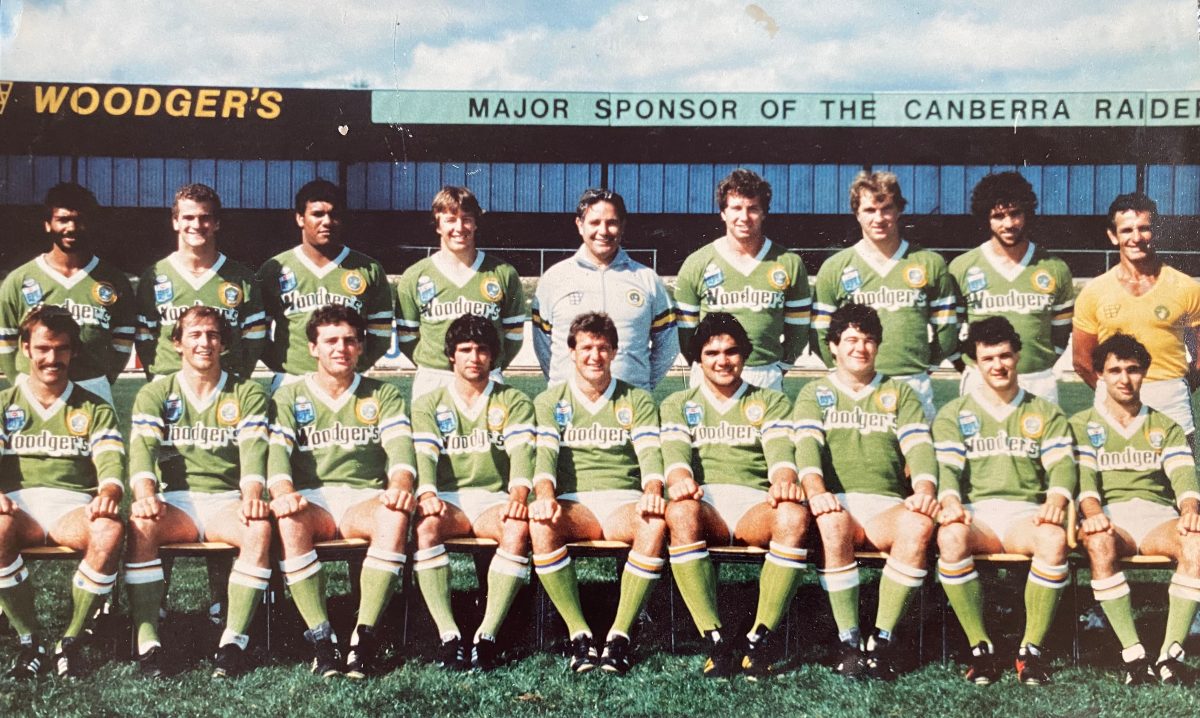
Woodgers were the major sponsor of the Canberra Raiders in 1984. Photo: Supplied.
Meanwhile, the Brumbies have also had Canberra Milk, the Aquis Group (then owners of the Canberra Casino) and the University of Canberra.
In recent years, both the Raiders and the Brumbies have looked beyond Canberra for major backers.
Global recruitment company Safeguard Global is the Brumbies’ major sponsor, while the Raiders’ major sponsor is Toyota Forklifts.
It’s also worth noting both are recipients of significant ACT Government funding, dwarfed, it has to be said, by the GWS deal.
Beyond the Brumbies and the Raiders, the level of sponsorship in Canberra is far lower.
It raises the question: if the Big Bash franchise, an NBL team and the A-Leagues get up in Canberra, where will the money come from?
Every sport, it seems, has been beating down a path seeking government funding amidst suggestions that the government funding will decide whether the bid succeeds.
Under normal circumstances, ACT Government funding shouldn’t determine whether Canberra sports teams survive.

Ricky Stuart at the announcement of Canberra Milk as the Raiders’ major partner in 2021. Photo: Raiders website.
Rightly or wrongly, the GWS deal continues to be used against the government when teams or bids are seeking greater financial support.
In many ways, it has created a rod for the ACT Government.
Sport, it has to be said, is a major contributor to the Canberra economy and the health of its citizenry, including their social health. It deserves a level of government support. It also needs to be sustainable and to some extent, self-sufficient.
Three more professional sporting franchises will test that sustainability.












